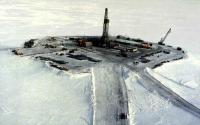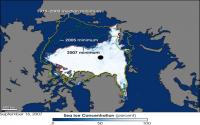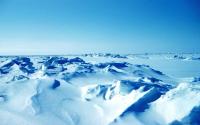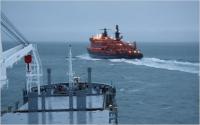Recent News

One reason China may be so intent on controlling the South China Seas is that it needs the space for its growing underseas submarine fleet to adequately protect its nuclear deterrent and correct the strategic imbalance with the United States.
[ More ]
The United Nations’ top climate official took a subtle poke at the Obama administration on Wednesday over its decision to conditionally allow oil exploration off Alaska’s coast, suggesting that the Arctic’s oil and gas should stay underground.
[ More ]
China has come up with a sweetheart deal to break through India's resistance to its attempt to access the Indian Ocean. It is offering India an opportunity to participate in joint seabed mining in the ocean, which has strong potential of yielding expensive minerals.
[ More ]
As known sources of oil are depleted, previously inaccessible areas of hydrocarbon wealth are becoming prospective targets of exploration. Namely, the Arctic.
[ More ]
A new study, just out in the Proceedings of the National Academy of Sciences, finds that as the Arctic Ocean warms and loses its sea ice cover, populations of phytoplankton will boom. This will, in turn, further amplify warming by 20 percent in a region that’s already heating up twice as fast as the rest of the planet.
[ More ]
The authors report on the findings of a recent conference study report on how the U.S. should manage its upcoming leadership role on the Arctic Council to best ensure a continuation of international cooperation in the Arctic.
[ More ]
Synthesizing much past academy work on the Arctic region, a new report from the National Academy of Sciences reports on the many ways that changes in the Arctic will reverberate well beyond it and, in some cases, have planet wide consequences.
[ More ]
The author argues that the U.S., Canada, and Russia would all benefit economically and strategically from greater cooperating together to establish safe, secure and reliable Arctic shipping.
[ More ]
The author points to the risk of a runaway greenhouse reaction as Arctic permafrost begins to melt, releasing trapped methane and accelerating the rate of global warming globally in a dangerous feedback loop.
[ More ]
The author argues for a number of infastructural improvements that the U.S. needs to implement ahead of assuming its leadership role in the Arctic council.
[ More ]